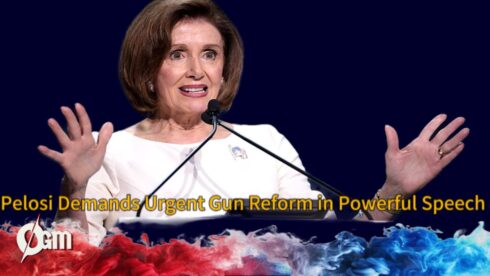Vice President Kamala Harris has unveiled a pioneering proposal to introduce a federal ban on price gouging for groceries, addressing the escalating concerns about rising food costs and their impact on American families. This initiative seeks to alleviate the financial burden on households struggling to make ends meet, ensuring access to affordable essential items. By targeting price gouging, the proposal aims to prevent unfair price hikes and promote fair market practices.
If enacted, this proposal would mark the first federal-level legislation specifically targeting food price increases, signaling a bold approach to economic policy. The Kamala Harris campaign emphasizes that this initiative is part of a broader strategy to tackle the rising cost of living for average Americans. By addressing the root causes of price gouging, the proposal seeks to create a more equitable and sustainable food system, ensuring that all individuals have access to affordable groceries and a better quality of life.
Proposed Ban Targets “Unfair Exploitation” by Large Corporations
According to the Kamala Harris campaign, the proposed ban would focus on “setting clear rules of the road” to prevent large corporations from unfairly exploiting consumers. The primary goal is to curb excessive corporate profits on food and groceries, ensuring that basic necessities remain affordable for all Americans.
This plan emerges amid ongoing debates about the root causes of price increases. While some argue that inflation is the primary driver, others point to corporate profit-seeking as a significant factor. Kamala Harris’s proposal seeks to address the latter concern directly.
Comprehensive Cost-Reduction Measures on the Horizon
In addition to the grocery price gouging ban, Kamala Harris’s campaign has revealed plans to address other areas of consumer spending. These include initiatives to lower prescription drug costs and housing expenses, demonstrating a multi-faceted approach to tackling the cost of living crisis.
These proposals form part of a comprehensive strategy to address various aspects of financial strain affecting American households. By targeting multiple sectors, Kamala Harris aims to provide relief across several key areas of consumer spending.
Swift Implementation and Robust Enforcement Planned
Kamala Harris has expressed her intention to implement the price-gouging ban within her first 100 days in office, should she be elected. This ambitious timeline aligns with the historically productive period for new administrations, signaling a commitment to swift action on economic issues.
The plan includes directing the Federal Trade Commission to enforce the new rules, with the power to impose “harsh penalties” on companies found in violation. This enforcement mechanism aims to ensure compliance and deter potential infractions.
Potential Impact on Consumers and Businesses Under Scrutiny
For families grappling with rising costs, these proposed rules could potentially provide significant relief in their grocery budgets. However, the full impact on businesses and the broader economy remains a subject of debate and speculation.
Economists and policy experts are likely to analyze the potential effects of such regulations on market dynamics, competition, and overall economic health. The balance between consumer protection and market flexibility will be a key point of discussion as the proposal moves forward.
Polarized Reactions to Groundbreaking Proposal on Food Price Gouging
The proposal to ban price gouging for groceries has sparked intense debate, eliciting mixed reactions from stakeholders across the political spectrum. Proponents of the initiative applaud it as a vital measure to shield consumers from predatory pricing practices, ensuring fair market conditions. Conversely, critics express apprehensions about government intervention in market pricing mechanisms, citing concerns about potential unintended consequences on the economy.
As the debate surrounding this proposal intensifies, it is poised to become a pivotal issue in forthcoming political discussions, particularly in the realms of economic policy and consumer protection. The outcome of this debate will significantly influence the economic narrative leading up to future elections, with far-reaching implications for policymakers and stakeholders. As the conversation unfolds, it will be crucial to strike a balance between protecting consumers and preserving the integrity of market forces.














